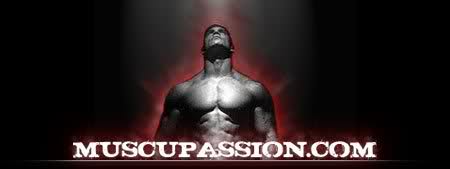Are You Sleeping Enough for Optimal Testosterone Production?
If you were to ask someone what’s the best way to raise testosterone naturally, about 99 percent of people would say, “High-intensity exercise.” This is true, but exercise is only part of the equation. It seems that sleep is more important for testosterone production than researchers thought.
Two studies recently correlated resting testosterone with the amount of sleep in men.1,2 Researchers have speculated that using the Internet late at night, and watching late-night television have compromised the normal sleep rhythms of many young men. Americans are sleeping less than the recommended 8 hours each night.3 Sleep also decreases with age. So researchers asked the question: does reduced sleep that occurs with aging have any impact on testosterone levels?
Does Reduced Sleep Impact Testosterone?
Researchers from China collected the blood from 531 Asian males between the ages of 29 and 70. The men also completed questionnaires about their sleep habits. The researchers found that many men above age 50 were sleeping less than 6 hours a night, compared to men in their 40s. So let’s get down to the bottom line: does the amount of sleep you get impact testosterone levels? YES!
The researchers found that the less men slept, the lower their serum testosterone tended to be. There was a direct correlation between sleep and testosterone levels; this finding was independent of age, total body fat, and exercise intensity.7
It was previously reported that men who slept between 4 and 6 hours had lower testosterone levels than men who slept more than 8 hours.4,5 In the more recent study, the relationship between sleep loss and testosterone and free testosterone (bioavailable testosterone) was lower in men who slept between 4 and 6 hours, compared to men who slept more than 6 hours. This gives credence to the suggestion that men who sleep less than 6 hours a night have lower testosterone and free testosterone, compared to those who sleep more than 6 hours.
It’s interesting that endocrinologists may want to look at sleep history as a contributor to low testosterone in older men when they perform blood tests for serum testosterone. In men with low concentrations of androgens who also have poor sleep habits, the promotion of better sleep hygiene may represent a non-drug intervention for improving their androgen concentrations.
An adequate nightly sleep is a key component of man’s recuperation process following a day’s work. This recuperation process is the engine for the regeneration of alertness required for optimal cognitive and physical functional capacities.
The latter study observed that total testosterone and bioavailable testosterone were highest in men who slept between 6 to 8 hours or more. These results solidify my support of an earlier study that found the optimal sleep duration is about 8 hours.6
Some bodybuilders may only sleep 6 hours a night, but based on the current study, men who slept less than 6 hours had less serum testosterone production than men who slept 8 hours a night.
References:
1. Goh VHH, Tong TYY, Mok HPP, Said B. Interactions among age, adiposity, bodyweight, lifestyle factors and sex steroid hormones in healthy Singaporean Chinese men. Asian J Androl, 2007; 9:611-621.
2. Ponholzer A, Plas E, Schatzl G, Struhal G, Brossner C, Mock K, Rauchenwald M, Madersbacher S. Relationship between testosterone serum levels and lifestyle in aging men. Aging Male, 2005; 8(3-4):190-193.
3. Harrison Y, Horne JA. Should we be taking more sleep? Sleep, 1995; 18(10): 901-907.
4. Penev PD. Association between sleep and morning testosterone levels in older men. Sleep, 2007; 30(4):427-432.
5. Opstad PK. Androgenic hormones during prolonged physical stress, sleep and energy deficiency. J Clin Endocrinol Metab, 1992; 74(5):1176-1183.
6. Belenky G, Wesensten NJ, Thorne DR, Thomas ML, Sing HC, Redmond DP, Russo MB, Balkin TJ. 2003 Patterns of performance degradation and restoration during sleep restriction and subsequent recovery: a sleep dose-response study. J Sleep Res, 2003; 12(1):1-12.
7. Goh VH, Tong TY. Sleep, Sex Steroid Hormones, Sexual Activities, and Aging in Asian Men. J Androl, 2009.

